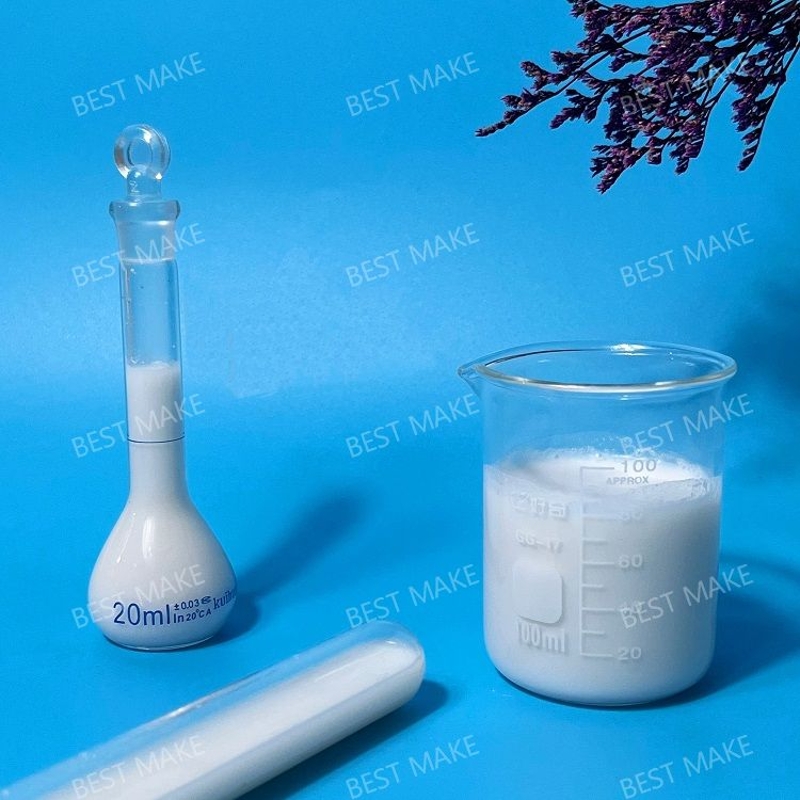-
Categories
-
Pharmaceutical Intermediates
-
Active Pharmaceutical Ingredients
-
Food Additives
- Industrial Coatings
- Agrochemicals
- Dyes and Pigments
- Surfactant
- Flavors and Fragrances
- Chemical Reagents
- Catalyst and Auxiliary
- Natural Products
- Inorganic Chemistry
-
Organic Chemistry
-
Biochemical Engineering
- Analytical Chemistry
- Cosmetic Ingredient
-
Pharmaceutical Intermediates
Promotion
ECHEMI Mall
Wholesale
Weekly Price
Exhibition
News
-
Trade Service
Recently, the China Association of Automobile Manufacturers released the latest data showing that in the first six months of this year, China's new energy vehicle production reached 76,000 units, an increase of 2.
5 times
year-on-year.
However, while the production of new energy vehicles is growing rapidly, there is a gap
in the production of supporting power batteries.
It is reported that now the power battery basically as long as it can be manufactured, the problem of selling it is not big
.
Everyone is busy building, and it is difficult for anyone to sink their heart into research and development
.
This not only greatly restricts the release of new energy vehicle production capacity, but also affects the progress of
power battery technology.
According to experts, the technical threshold for the production of new energy vehicle batteries is not high, which directly leads to the rapid expansion of power battery production capacity
.
However, the production of large-scale battery companies with low technology content may turn domestic battery production capacity from shortage to excess
.
Industry insiders expect that with the rapid realization of production capacity, the battery industry may usher in a reshuffle in the second half of 2016
.
At present, Japanese and Korean companies are overall ahead of domestic power battery companies in production cost and technology, and domestic battery companies have a big gap
with Japanese and Korean companies in automation and research and development capabilities.
A battery technology expert said that at this stage, the production cost of domestic power battery companies is about 2 yuan per watt-hour, and the cost is about 50,000 yuan according to the power battery with a capacity of 25 kWh
.
Such costs are significantly higher than LG, Samsung and other South Korean power battery manufacturers
.
According to reports, the cost of Korean companies has dropped to less than 1.
8 yuan per watt-hour, which means that the same 25 kWh power battery will cost less than 45,000 yuan
.
Not only that, the energy density of domestic battery companies is also lower than that of Japanese and Korean companies
.
The energy density of domestic better power battery modules is 130 watt-hours per kilogram, while the energy density of power battery modules produced by Japanese companies such as Panasonic can exceed 200 watt-hours per kilogram, and the power batteries produced by South Korean companies such as LG and Samsung can also reach about
180 watt-hours per kilogram.
This means that the weight of batteries produced by domestic battery companies with a capacity of 25 kWh will exceed 190 kg, while the weight of the same capacity battery produced by Korean companies is about 140 kg, and some Japanese companies can reach 125 kg
.
This has a great impact on the lightweight of new energy vehicles
.
Now the state of domestic battery companies is generally very impetuous
.
As the demand for supporting batteries by new energy vehicle companies continues to be strong, battery companies are more enthusiastic about production capacity investment than the pursuit
of R&D and technology.
With the rapid growth of new energy vehicle production and sales in recent years, the gap in automotive battery production has gradually emerged
.
This has stimulated the enthusiasm
of supporting battery enterprises to put into production.
A person in charge of a power battery company introduced that only LG, Samsung, Lishen and CATL four power battery companies, next year will put into production capacity of more than 10 GWh, and each GWh of battery production capacity can meet the needs of about 40,000 new energy vehicles, that is, the production capacity of the above four power battery companies alone can meet the assembly needs
of 400,000 new energy vehicles.
At present, the core technology of power batteries is relatively mature, so it is not difficult for enterprises to achieve production, which has caused many battery companies that are not strong to go on projects
.
However, the procurement of the 12 mainstream new energy vehicle companies in China basically comes from the 5 major power battery manufacturers
.
As the production capacity of large battery companies with technological advantages keeps up, it will be difficult for small enterprises that do not have advantages in technology and cost to survive
.
It is expected that battery companies will face a reshuffle at the end of 2016
.
Recently, the China Association of Automobile Manufacturers released the latest data showing that in the first six months of this year, China's new energy vehicle production reached 76,000 units, an increase of 2.
5 times
year-on-year.
However, while the production of new energy vehicles is growing rapidly, there is a gap
in the production of supporting power batteries.
It is reported that now the power battery basically as long as it can be manufactured, the problem of selling it is not big
.
Everyone is busy building, and it is difficult for anyone to sink their heart into research and development
.
This not only greatly restricts the release of new energy vehicle production capacity, but also affects the progress of
power battery technology.
According to experts, the technical threshold for the production of new energy vehicle batteries is not high, which directly leads to the rapid expansion of power battery production capacity
.
However, the production of large-scale battery companies with low technology content may turn domestic battery production capacity from shortage to excess
.
Industry insiders expect that with the rapid realization of production capacity, the battery industry may usher in a reshuffle in the second half of 2016
.
At present, Japanese and Korean companies are overall ahead of domestic power battery companies in production cost and technology, and domestic battery companies have a big gap
with Japanese and Korean companies in automation and research and development capabilities.
A battery technology expert said that at this stage, the production cost of domestic power battery companies is about 2 yuan per watt-hour, and the cost is about 50,000 yuan according to the power battery with a capacity of 25 kWh
.
Such costs are significantly higher than LG, Samsung and other South Korean power battery manufacturers
.
According to reports, the cost of Korean companies has dropped to less than 1.
8 yuan per watt-hour, which means that the same 25 kWh power battery will cost less than 45,000 yuan
.
Not only that, the energy density of domestic battery companies is also lower than that of Japanese and Korean companies
.
The energy density of domestic better power battery modules is 130 watt-hours per kilogram, while the energy density of power battery modules produced by Japanese companies such as Panasonic can exceed 200 watt-hours per kilogram, and the power batteries produced by South Korean companies such as LG and Samsung can also reach about
180 watt-hours per kilogram.
This means that the weight of batteries produced by domestic battery companies with a capacity of 25 kWh will exceed 190 kg, while the weight of the same capacity battery produced by Korean companies is about 140 kg, and some Japanese companies can reach 125 kg
.
This has a great impact on the lightweight of new energy vehicles
.
Now the state of domestic battery companies is generally very impetuous
.
As the demand for supporting batteries by new energy vehicle companies continues to be strong, battery companies are more enthusiastic about production capacity investment than the pursuit
of R&D and technology.
With the rapid growth of new energy vehicle production and sales in recent years, the gap in automotive battery production has gradually emerged
.
This has stimulated the enthusiasm
of supporting battery enterprises to put into production.
A person in charge of a power battery company introduced that only LG, Samsung, Lishen and CATL four power battery companies, next year will put into production capacity of more than 10 GWh, and each GWh of battery production capacity can meet the needs of about 40,000 new energy vehicles, that is, the production capacity of the above four power battery companies alone can meet the assembly needs
of 400,000 new energy vehicles.
At present, the core technology of power batteries is relatively mature, so it is not difficult for enterprises to achieve production, which has caused many battery companies that are not strong to go on projects
.
However, the procurement of the 12 mainstream new energy vehicle companies in China basically comes from the 5 major power battery manufacturers
.
As the production capacity of large battery companies with technological advantages keeps up, it will be difficult for small enterprises that do not have advantages in technology and cost to survive
.
It is expected that battery companies will face a reshuffle at the end of 2016
.







